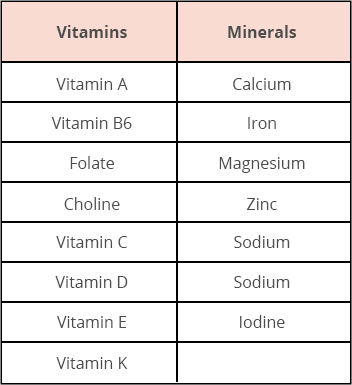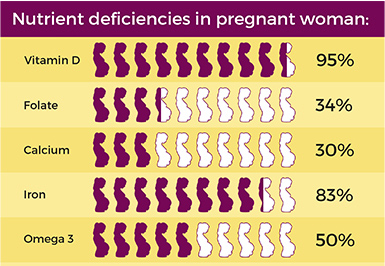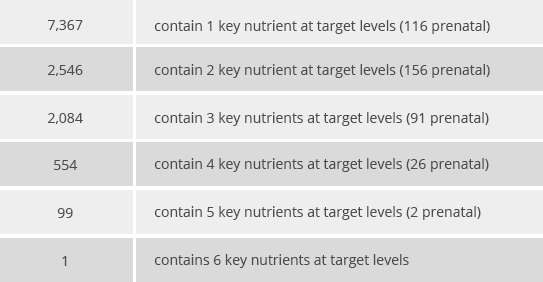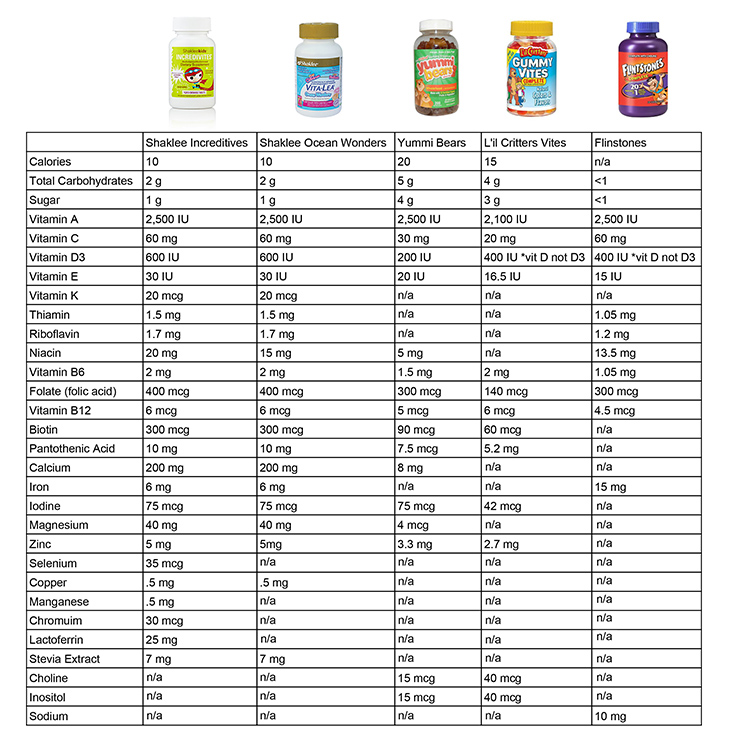Importance of Prenatal Nutrition in the First 1,000 Days
Category: Healthy Body

The first 1,000 days – the period between conception and a child’s second birthday –is a unique window of opportunity to enable all children to reach their full potential.
It is the time of rapid development of the brain, the body, and the immune system, and nutrition provides the fuel that drives a child’s early development.
This statistic is shocking - An estimated 149 million children under the age of five are developmentally stunted due to chronic malnutrition during the first 1,000 days.
This makes them susceptible to life-threatening diseases and infections.
This global crisis requires action and investment in the nutrition and well-being of all pregnant, birthing, postpartum, and parenting people and their children in the first 1,000 days, with a focus on the most disadvantaged.
According to thousanddays.org, the US has one of the highest infant mortality rates and maternal mortality rates of any wealthy country and ranks among the worst among its peers in key child health metrics:
-
1 in 10 babies is born prematurely
-
1 in 6 babies is never breastfed
-
1 in 8 toddlers is overweight
-
1 in 7 households with children is food insecure
The table below shows the main vitamin and mineral shortfalls during pregnancy according to the US NHANES Survey Data.

Approximately 1/3 of pregnant and lactating women in the U.S. are at least marginally iodine deficient.
Although most pregnant and lactating women take supplements, only 50% of prenatal supplements in the U.S. contain iodine.
Pregnant women also need at least 27 mg of iron daily, which is double the amount needed by women who are not expecting. The additional amount is necessary to make more blood to supply the baby with oxygen.
Getting too little iron during pregnancy may lead to anemia, resulting in fatigue and an increased risk of infections.
Even if you're already eating a well-balanced diet, you can never be sure of how much nutrients you're getting because food processing and preparation can strip some of the nutrients from the ingredients you use.
That's why most doctors recommend that women who are pregnant, planning to become pregnant, or are currently nursing add high-quality supplements to their daily regimen.
A good prenatal supplement program should have all the vitamins and minerals in the table above, plus omega-3 fatty acids EPA and DHA.
A recent study published in The American Journal of Clinical Nutrition evaluated whether prenatal supplements currently available in the U.S. meet the recommended standards for supporting a healthy pregnancy.
They focused on six essential nutrients critical to a healthy pregnancy and found that a significant number of pregnant women are not getting enough of them.

Nutrient Deficiencies in Pregnant Women
A significant number of pregnant women are missing key nutrients essential for a healthy pregnancy:
-
95% are not getting enough vitamin D
-
34% are not meeting recommended levels of folate
-
30% are lacking adequate calcium
-
83% have insufficient
iron intake -
50% are not consuming enough omega-3 fatty acids
Out of the 12,651 dietary supplements reviewed in the government database, every single one contained at least one of the six essential nutrients. Among them, 391 supplements were specifically labeled as prenatal.
Here’s what they discovered:
Most of these supplements only delivered one key nutrient at the recommended target level. Shockingly, only ONE supplement contained all six essential nutrients at optimal levels.

Let that sink in for a moment…
Of the 391 supplements labeled as prenatal, only one actually met the full nutritional needs recommended for pregnant women.
This underscores the importance of being an informed consumer—because when it comes to pregnancy and prenatal health, not all supplements are created equal, and every nutrient truly matters.
Thanks for reading!
Jerry


